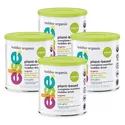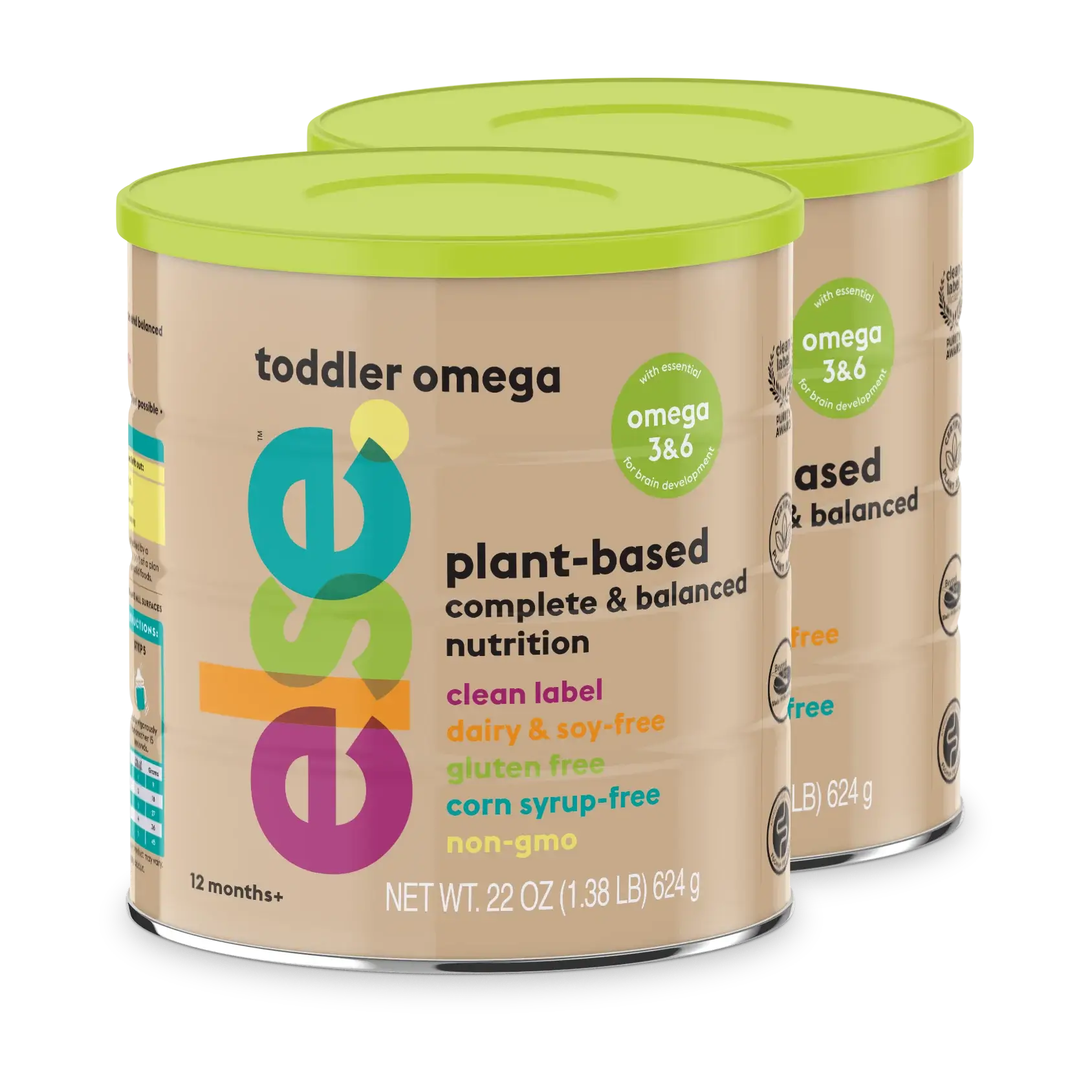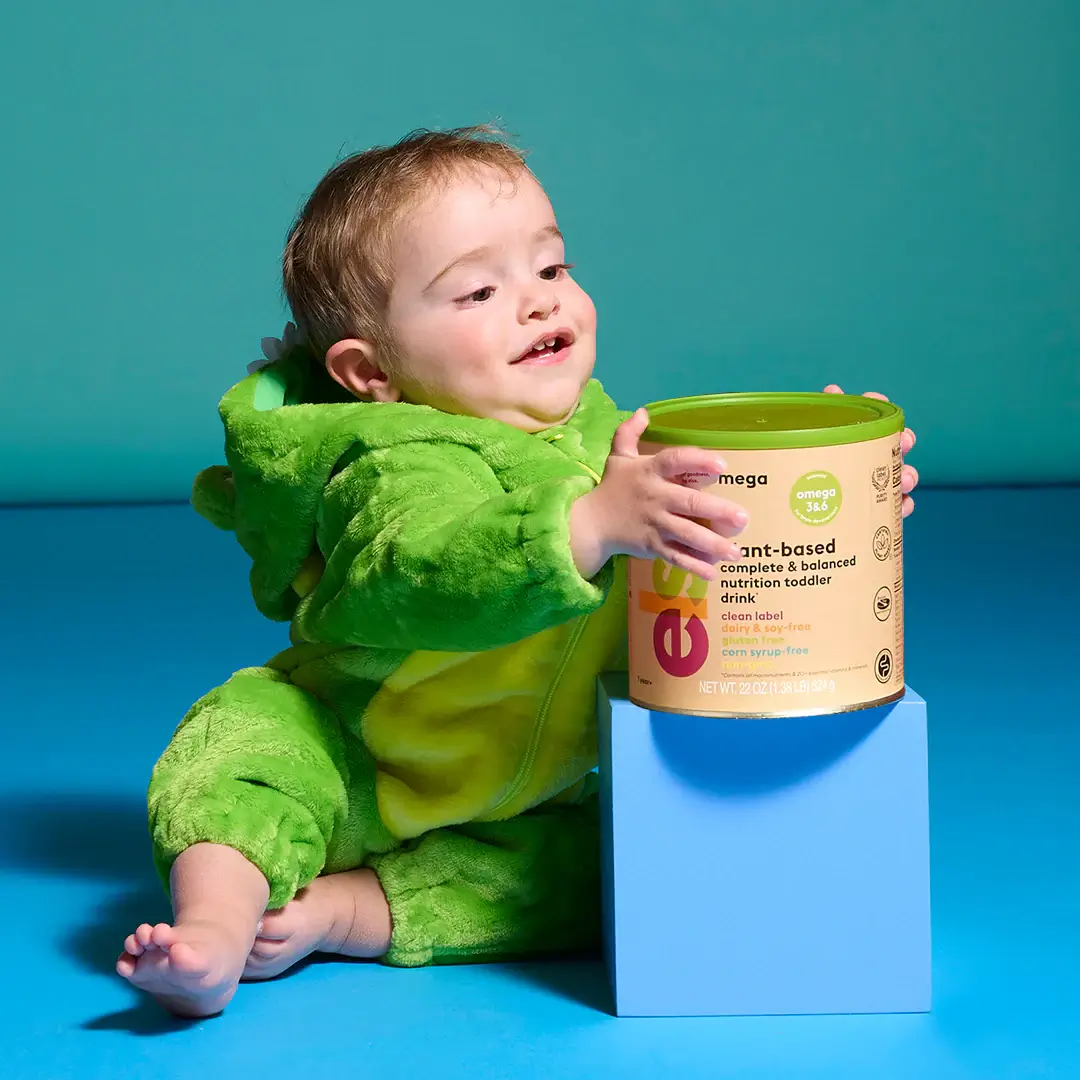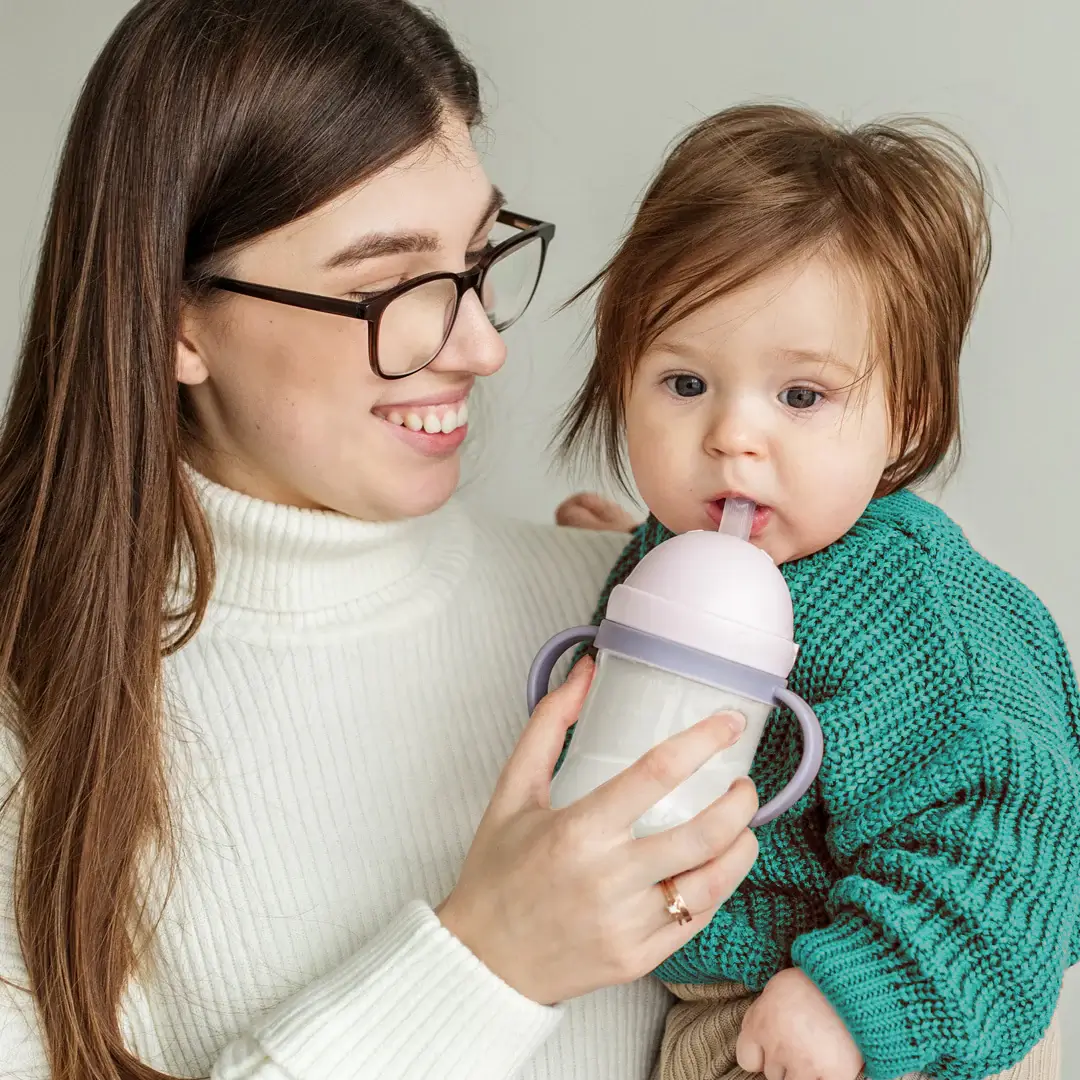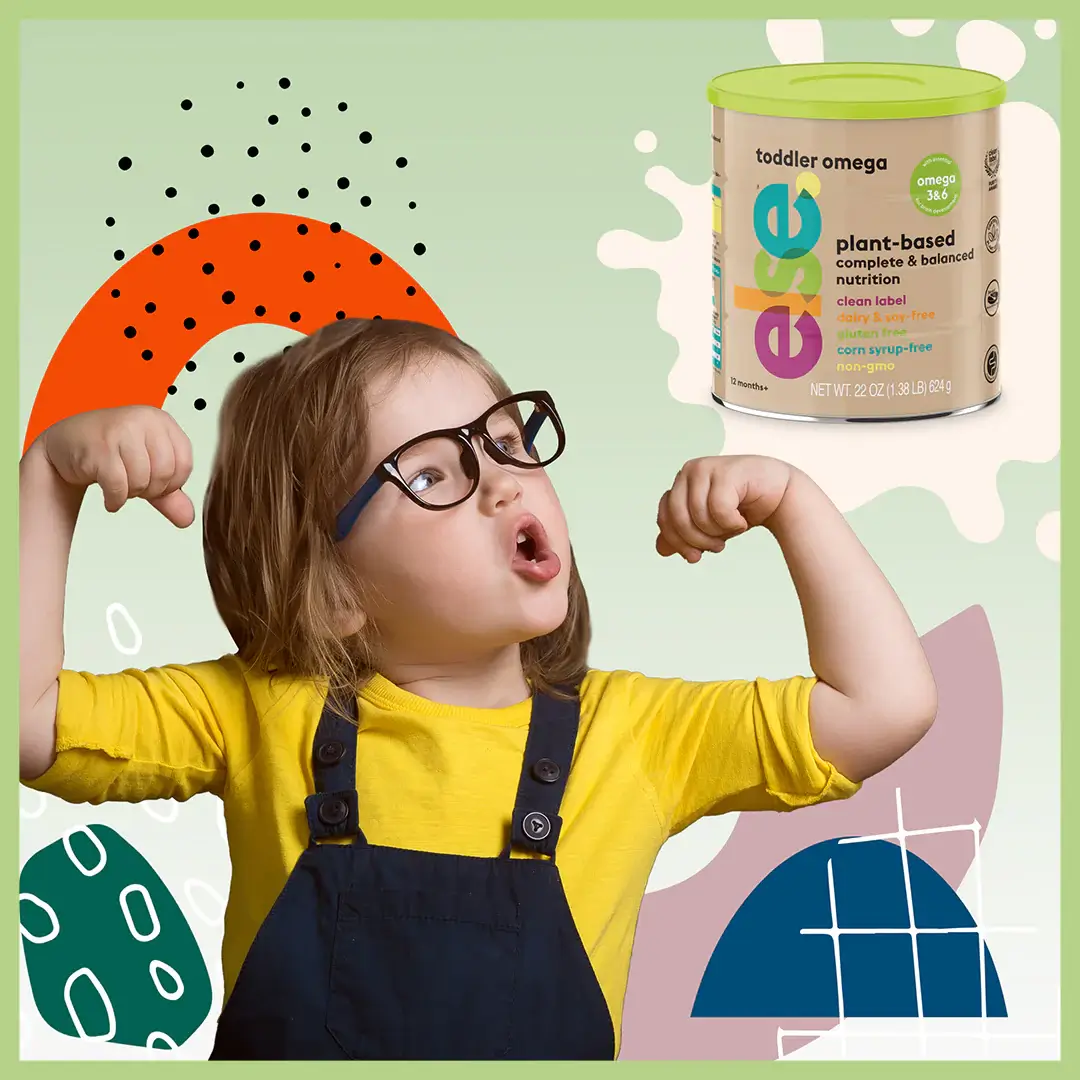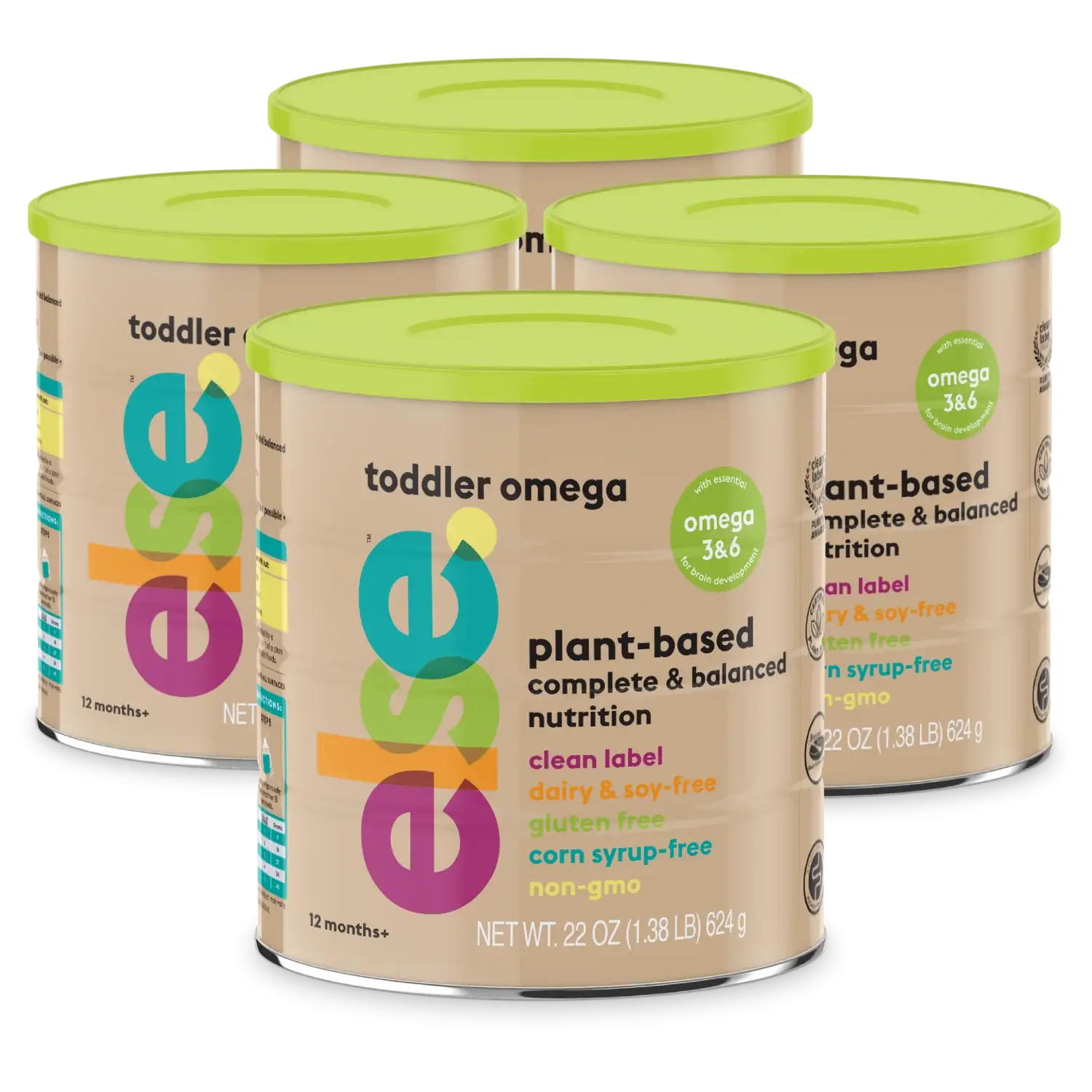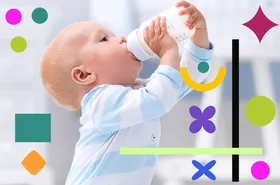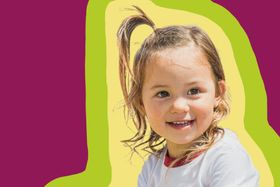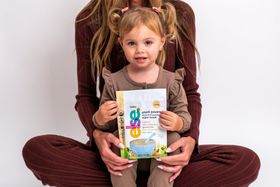Which is Better? Toddler Formula Vs. Whole Milk
Confused about toddler formula vs. whole milk? Learn about the differences and make an informed decision for your child's health.
Published May 6, 2024
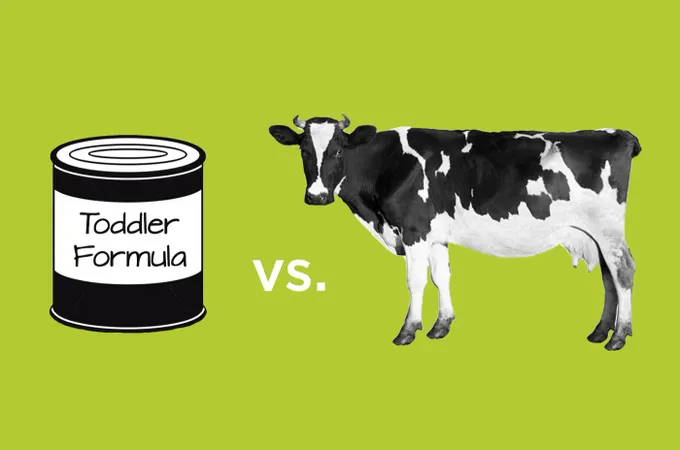
Your little one, once a bundle of baby limbs and sweet gurgles, is now stepping into the vibrant world of toddlerhood. As they grow and change, so do their nutritional needs. One of the pivotal decisions you'll encounter at this stage is choosing what fills their sippy cup: toddler formula vs milk.
The toddler stage can pose challenges when deciding what to offer your child to drink. Should it be regular cow's milk, soy milk, or toddler milk? What about solid food? When your child reaches 1 year of age, should you transition from breast milk or infant formula to whole milk, or is toddler formula a better option? With an abundance of milk products and milk alternatives available, it can be difficult to navigate the best course for your toddler's nutrition.
This guide aims to provide everything you need to know about toddler formula vs milk, comparing them across various categories to help you make an informed decision suitable for your family and your child's specific needs. It includes insights on differences between infant formula and toddler formula, considerations for children with milk protein allergy, and factors to consider if you're thinking about plant-based milk or other milk substitutes.
Considering Individual Needs and Expert Advice
Remember, every toddler is unique. Some toddlers need the extra nutrients found in toddler formula, while others may fare well on whole cow's milk. Some might have a milk protein allergy, requiring alternatives like soy milk or almond milk. And almost all toddlers are picky eaters at some point, which could influence your decision.
The American Academy of Pediatrics notes that while toddler formula may have a slightly different mix of nutrients compared to whole milk, there's no evidence that it's superior for growth or development. So whether it's regular milk vs toddler formula or a "transitional formula", the best choice will depend on your toddler's nutritional needs and any advice from your pediatrician.
Nutrient Content – Winner: Plant-Based Toddler Formula
The food that goes into your child’s body becomes fuel for her brain, body, and play. Every nutrient is crucial to your child’s development. So understanding exactly what your child’s go-to beverage provides is essential to choosing between plant-based toddler formula and whole milk.
Your child needs a whole alphabet of vitamins and minerals.
In a cup of whole milk, you’ll find:
- Vitamin A – An essential nutrient to your child’s vision health and immune system development.
- Vitamin D – Vitamin D keeps your child’s bone, teeth, and muscles healthy.
- Calcium – This micronutrient is the building block of your child’s blood, teeth, muscle, and bone health.
- Potassium – Potassium helps your child’s internal fluids stay in balance, supports muscle development, and maintains proper nervous system function.
- Protein – When your child gets a boo-boo, her body uses protein to help repair skin, muscle, and tissue damage. Protein is also essential for proper growth.
- Carbohydrates – An important source of energy for the body, carbohydrates are vital to your child’s health.
- Riboflavin – Also known as vitamin B2, riboflavin helps your child’s body convert food into energy to power playtime as well as her body’s natural growth.
- Phosphorus – This micronutrient works with protein and calcium to build bones and teeth. It also plays a key role in the growth, maintenance, and repair of your child’s cells and tissues.
- Niacin – Niacin, also called vitamin B3, maintains your child’s nervous system, and digestive system, and helps keep her skin healthy.
In one serving of Else’s plant-based toddler formula, you’ll find all of these vitamins and quite a few that milk doesn’t have, including:
- Vitamin E – Vitamin E acts as an antioxidant, a powerful nutrient that protects your child from cellular damage.
- Vitamin B6 – It might seem like your child will never run out of energy—and you partly have vitamin B6 to thank for that. Vitamin B6 helps the body use and store the energy it absorbs from protein and carbohydrates. It also helps your child form hemoglobin, the part of your child’s red blood cells that carries oxygen to all parts of her body.
- Vitamin B12 – One of the brainiest vitamins, vitamin B12 helps your child’s brain and nervous system development. It also plays a key role in preventing a type of anemia called megaloblastic anemia, which causes children to feel tired and weak. Vitamin B12 helps your child play and grow from the inside out.
- Magnesium – Magnesium does a little bit of everything in the body. It helps regulate muscle and nerve function, maintains proper blood sugar levels, helps to make proteins, bone, and DNA, and even promotes ideal blood pressure levels.
- Vitamin C – Another micronutrient that doubles as an antioxidant, vitamin C helps keep your child’s immune system strong.
- Thiamine – The nerves in your child’s body sends signals to her brain when her body needs food, rest, or an extra blanket before she drifts off to sleep. Thiamine keeps those nerves in tip-top condition. It also cultivates healthy muscle growth.
- Folate – Folate is integral to blood cell production and healthy brain development for your growing toddler.
- Biotin – You have biotin to thank for your child’s teeny tiny nails, her beautiful hair, and her super soft toddler skin.
- Zinc – This micronutrient does it all. It helps your child’s immune system, promotes healthy metabolism function, helps your child recover from wounds, and even plays a role in your child’s sense of taste and smell.
- Iron – Your child’s body uses iron to foster growth and development in her blood, bones, muscles, and important brain chemicals.
When it comes to a variety of essential nutrients for your child, one serving of plant-based formula is head-and-shoulders above a cup of whole toddler milk. Else Toddler Formula may be extremely beneficial to your child's growth and development. Our organic formula may be the best option for your toddler and everything you need to know follows in this article.
Environmental Impact – Winner: Plant-Based Toddler Formula
Parents always say they want their children to grow up in a better world than they did. Environmentally conscious purchase practices are key to that goal. And in this category, a plant-based toddler formula takes the win.
The dairy industry is one of the leading contributors of greenhouse gas emissions, one of the biggest factors in climate change. On a typical day, one USDA study found that a commercial dairy farm of 10,000 milk cows produced high amounts of greenhouse emissions, including:
- 3,575 pounds of ammonia
- 33,092 pounds of methane
- 409 pounds of nitrous oxide
For a little context, a car produces about 2.7 tons of carbon dioxide, another damaging greenhouse emission, in a single year. The average dairy cow produces enough methane in a year to do the same greenhouse damage as 4 tons of carbon dioxide. And right now, there are about 270 million dairy cows on the planet.
Dairy farms also...
- Degrade local water sources through poor handling of manure and fertilizer.
- Contribute to water waste by using about 900 gallons of water to produce just one gallon of milk.
- Wipe out ecologically important areas due to unsustainable feed farming methods and the use of pesticides.
- Contaminate soil, water, and vegetation through the toxins expelled by cows after ingesting livestock antibiotics.
While more and more dairy farms are trying to adapt to a more climate-friendly production model with organic livestock practices and mindful farming, plant-based toddler formulas are built on sustainability.
Sugar Content – Winner: Whole Milk
One of the drawbacks of toddler formula—especially milk-based ones—is the use of artificial sweeteners like corn syrup. Scientists at the American Heart Association as well as the American Academy of Pediatrics recommend that toddlers completely avoid artificially sweetened drinks. Because whole milk’s sweetness comes from naturally occurring sugars, it beats toddler formula in this category.
However, plant-based toddler formulas like Else use only a touch of organic cane sugar. Cane sugar is one of the least processed forms of sugar. And when grown organically and free of pesticides, a little cane sugar goes a long way to encourage your child to drink a nutrient-dense formula like Else. Pediatricians may actually recommend Else due to it's ingredients and especially if your child has a milk protein allergy.
Overall Health – It’s a Tie - Organic Formula and Milk for Toddlers
When it comes down to it, experts haven’t found conclusive evidence that toddler formula is a healthier choice than whole milk. However, the transition from the nutrient-rich benefits of breast milk or infant formula can cause parents a bit of unease. Supplementing a milk substitute for toddlers can help put your mind at rest that your growing child is getting what she needs to grow up strong, especially if your toddler won’t drink milk. The transition from breast milk to solid food can be difficult but supplementing it with something you know your child will eat makes it easier. From 12 months plus Else has many options to help your child get all the nutrients they need.
The Winning Choice for Plant-Based Toddler Formula: Else
As a parent, you’ll be faced with tons of choices when it comes to your child’s health. Thankfully, Else makes it easy for you to choose health and wellness for your child everyday with our innovative plant-based toddler formula that comes with:
- Organic whole food ingredients – 92% of our nutrient-rich toddler formula is made from just three natural ingredients: almonds, tapioca, and buckwheat.
- Made without chemical processing – Because we want all children to grow up in a better world, our production methods are designed to make the smallest ecological footprint possible and maintain all the wonderful benefits of whole food ingredients.
- None of the bad stuff – Else is made without harmful extras you’ll find in other toddler formulas. That means there are no:
Take care of the planet and give your child the nourishment she needs with Else.
Sources
USDA. How Dairy Farms Contribute to Greenhouse Gas Emissions. World Wildlife Fund. Sustainable Agriculture: Dairy. EOS. Manute Happens: The Environmental Impact of Livestock Antibiotics. Time. Silence the Cows and Save the Planet. Boys Town Pediatrics. Nutrients for Toddlers. Kid’s Health. Iron. Fatherly. How to Get A Toddler Protein Without Them Eating Too Much. Anderson Erickson Dairy. Whole Milk. American Heart Association. What Should Your Baby or Child Be Drinking?
The content and advice provided in this article is for informational purposes only and is not a substitute for medical diagnosis, treatment, advice for specific medical conditions. Always consult a pediatrician to understand the individual needs of your child.




